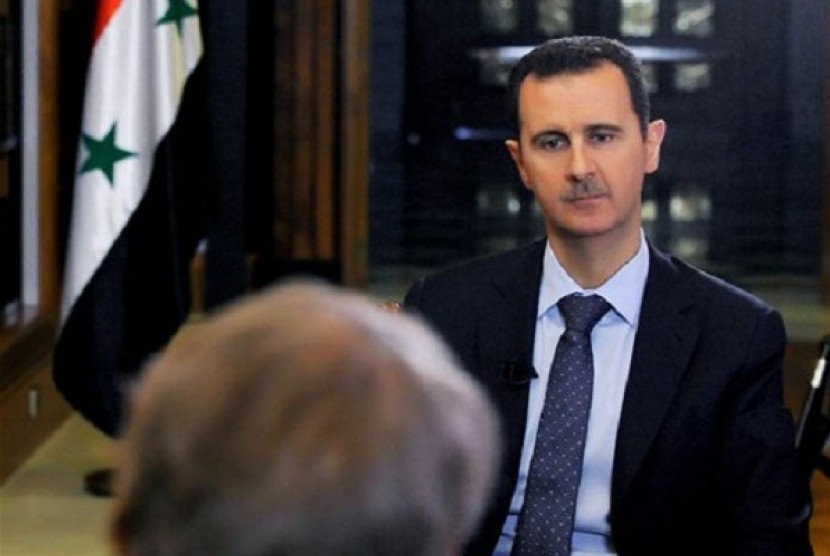REPUBLIKA.CO.ID, DAMASCUS -- The United States and Britain suspended non-lethal aid to rebels in northern Syria on Wednesday, a day after Islamists overran a border crossing in the snow-swept region near Turkey.
Gulf Arab states meeting in Kuwait demanded foreign militias withdraw from Syria and said President Bashar al-Assad must have no future role, in a declaration his regime denounced as meddling.
Thousands of Syrian refugees in neighbouring Lebanon also had to battle the elements when their makeshift camps were lashed by a winter storm that brought snow, rain and freezing temperatures.
The US and British decision to suspend non-lethal aid to the opposition in northern Syria came after Islamist rebels seized the Bab al-Hawa border crossing and key supply bases from the mainstream Free Syrian Army.
"We have seen reports that Islamic Front forces have seized the Atmeh headquarters and warehouses belonging to the (FSA's) supreme military council and we are obviously concerned," T.J. Grubisha, spokesman for the US embassy in Ankara, told AFP.
"Because of the current situation, the United States has suspended deliveries of non-lethal assistance into northern Syria."
Non-lethal US aid provided to the rebels has included armoured vehicles, night vision goggles and advanced communications equipment.
Grubisha said the decision to suspend such aid would not impact on humanitarian assistance which was coordinated by international and non-governmental organisations including the United Nations.
Britain said it too had suspended non-lethal aid, with a spokesman for its Ankara embassy saying the decision was taken because "the situation remains unclear" and did not mean support for the opposition was diminishing.
France said it would continue to provide "non-lethal military aid" to the main opposition National Coalition in coordination with its partners in the European Union.
The Islamic Front, the largest Islamist rebel force in Syria, seized depots belonging to the FSA near the Turkish border on Saturday, before taking control
of the Bab al-Tawa crossing itself on Tuesday, according to monitors.
In Kuwait City, leaders of the Gulf Cooperation Council called on foreign militias to withdraw from Syria in a strongly worded statement at the conclusion of its two-day annual summit.
The six-nation Gulf Arab bloc said it "strongly condemned the continued genocide that Assad's regime is committing against the Syrian people using heavy and chemical weapons".
Its call for "the withdrawal of all foreign forces from Syria" was a clear reference to Iran-backed Shiite militias from Iraq and Lebanon's Hezbollah movement which are supporting Assad's troops against Sunni-led rebels.
The GCC backed the National Coalition's decision to attend a Geneva peace conference, saying the January 22 meeting should lead to the formation of a transitional government with extensive executive powers and in which Assad would have no role.
"Pillars of the Syrian regime whose hands have been stained by the blood of the Syrian people must have no role in the transitional government or Syria's political future," the oil-rich nations said.
In response, Damascus strongly condemned the "inflammatory rhetoric of the Council's statement on Syria, particularly as countries in the Council... support and practise terrorism.
"Those who participated today in the summit in Kuwait, first among them the Saudi regime, have contributed in large part to the killing of Syrians and the destruction of their country," said the foreign ministry.


